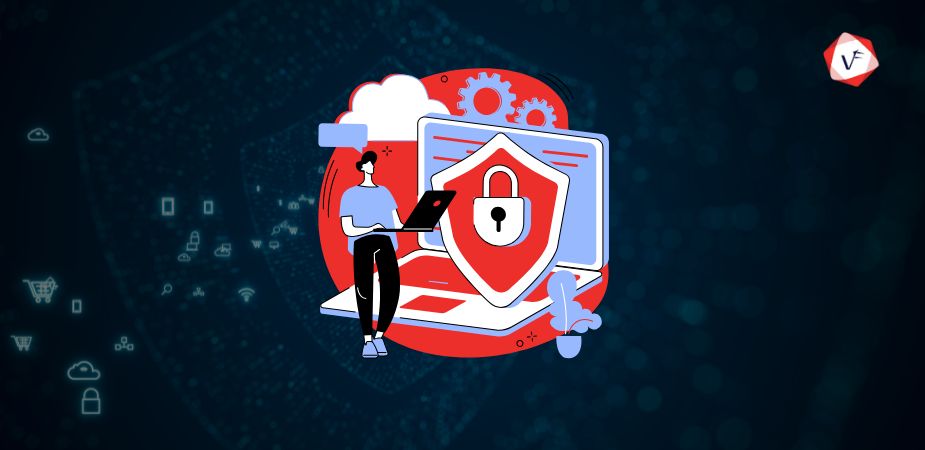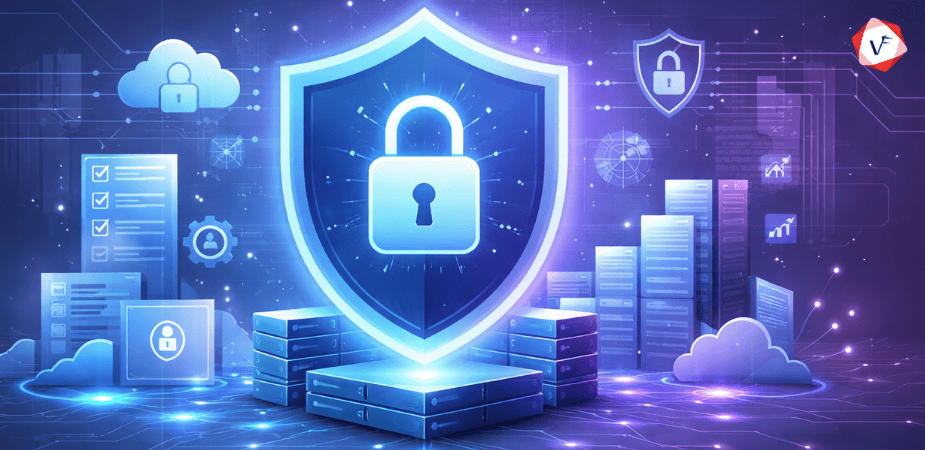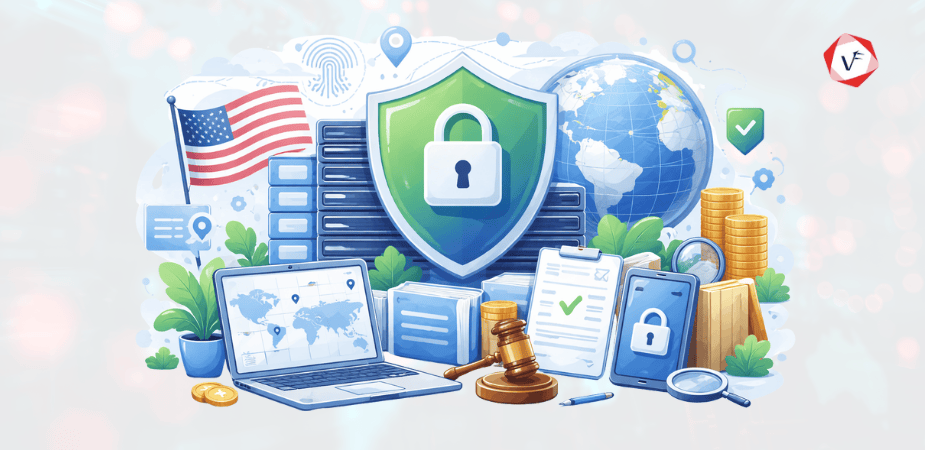- August 25, 2025 12:00 pm
- by Safvana
- August 25, 2025 12:00 pm
- by Deepthy

Let’s be honest, cybersecurity sounds like one of those complicated, IT-world-only things that small businesses or non-tech folks can just put off until “later.” But here’s the reality check: it’s 2025, and pretty much everything—from your client database to your invoicing system—is living online. And that means your business is a potential target, whether you’re a five-person startup or a well-established brand.
Cyberattacks aren’t just movie plot points anymore. They’re happening every day to businesses of every size. And when they hit, they hit hard, costing money, time, and most importantly, trust. So no, cybersecurity isn’t some fancy “nice-to-have.” It’s something you need to think about now.
Small businesses face significant cyber threats in 2025. By 2025, 50% of searches could be voice or image-based, meaning customers expect instant, secure digital experiences. Cybersecurity experts protect your business data, prevent attacks before they happen, handle emergencies quickly, ensure legal compliance, and provide peace of mind so you can focus on growing your business.
Cybersecurity professionals perform five critical functions:
1. Vulnerability Assessment: They analyze your systems for potential security weaknesses
2. Defense Implementation: Setting up firewalls, encryption, and secure authentication methods
3. 24/7 Monitoring: Tracking suspicious activity and stopping threats early
4. Incident Response: Managing security breaches quickly and effectively
5. Team Education: Training employees to recognize phishing scams and security threats
Cybersecurity expert costs vary significantly:
Essential cybersecurity qualifications include:
Ask these practical questions to evaluate candidates:
"Describe a real cybersecurity incident you handled and your response process."
"What steps would you take to secure a business like ours within the first 30 days?"
"Which cybersecurity tools do you recommend for small businesses and why?"
"How would you respond if our company received a ransomware attack?"
"What would you do if an employee clicked a suspicious email link?"
"How do you stay updated on emerging cybersecurity threats?"
Focus on how clearly they explain technical concepts, their logical problem-solving approach, and their confidence working with non-technical team members.
1.Check References: Contact previous clients directly
2. Verify Certifications: Use official certification databases
3. Review Portfolio: Examine past security implementations
4.Online Research: Search for blog posts, presentations, or GitHub contributions
5.Background Check: Verify employment history and education
"We're seeking a cybersecurity professional to protect our [industry] business using [systems like Google Workspace, AWS, etc.]. This [full-time/contract] position requires [specific certifications] and experience with [relevant threats]. Salary range: $[amount]."
Document these key areas in writing:
Yes, cyber insurance is essential even with expert security. These sectors require accuracy, authority, and trust are everything in cybersecurity protection.
1. Rushing the hiring process without proper vetting
2.Focusing only on certifications without practical experience
3. Hiring the cheapest option rather than the best fit
4. Not checking references thoroughly
5. Unclear role expectations leading to confusion
A qualified cybersecurity expert typically prevents losses worth 10-20 times their annual salary through proactive threat prevention and rapid incident response.
Can I Use AI Tools Instead of Hiring a Human Expert?
AI cybersecurity tools complement but cannot replace human expertise. AI excels at pattern recognition and automated responses, but humans provide strategic thinking, incident investigation, and complex problem-solving that AI currently cannot match.
How Often Should I Update My Cybersecurity Strategy?
Review your cybersecurity strategy quarterly and update it annually or after any significant business changes, security incidents, or regulatory updates.
What's the Difference Between Cybersecurity and IT Support?
IT support focuses on keeping systems running smoothly, while cybersecurity specifically protects against threats, breaches, and attacks. Many cybersecurity experts have IT backgrounds, but the roles require different specialized skills.
Should I Hire Locally or Remotely?
Remote cybersecurity work is common and effective. Focus on finding the best qualified expert regardless of location, but ensure they can respond quickly during emergencies and understand your local regulatory requirements.
Ready to protect your business? Start by assessing your current security needs, then use this guide to find and hire the right cybersecurity expert for your specific situation. Remember, investing in cybersecurity solutions today prevents much larger costs tomorrow.
Guaranteed Response within One Business Day!

Top Software Trends to Watch in 2026 (From the Ground, Not the Hype Deck)

Data Privacy by Design: Architecture for Compliance & Trust

What is Vertical SaaS? The Complete Guide to Industry-Specific Software

What is Data Sovereignty?

Building Green Software: Eco-Friendly Coding and Sustainable Cloud